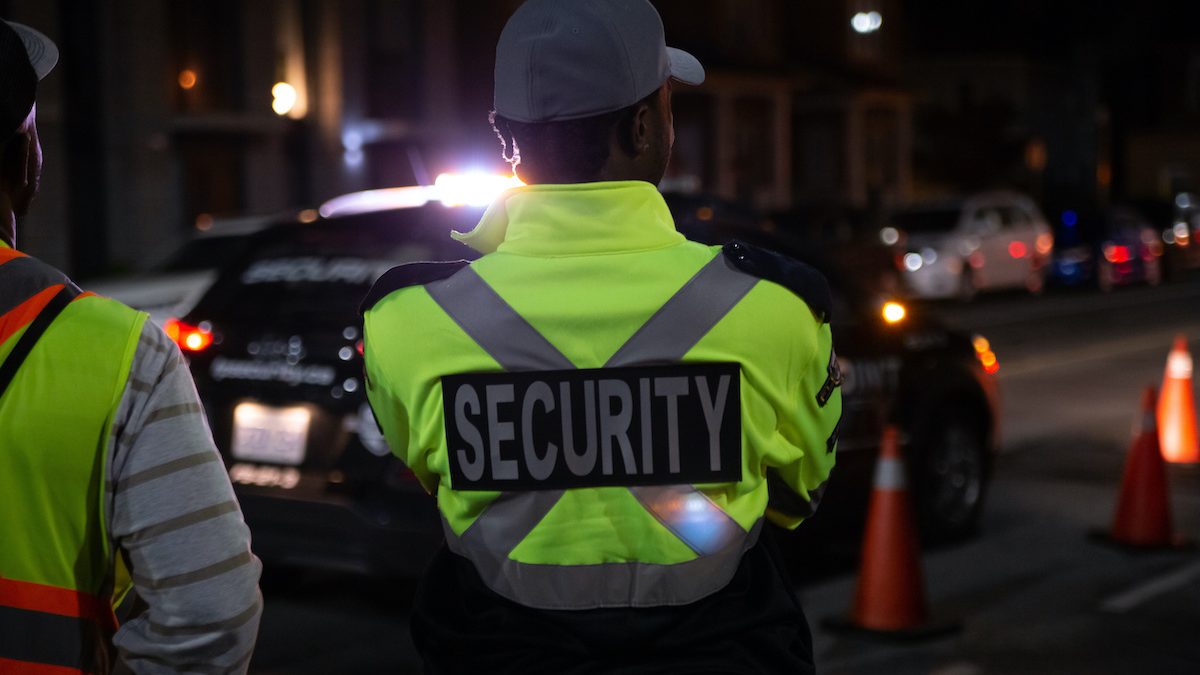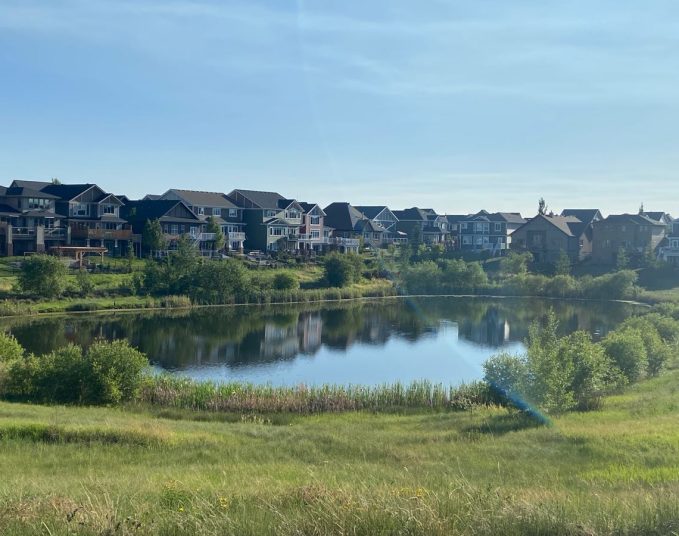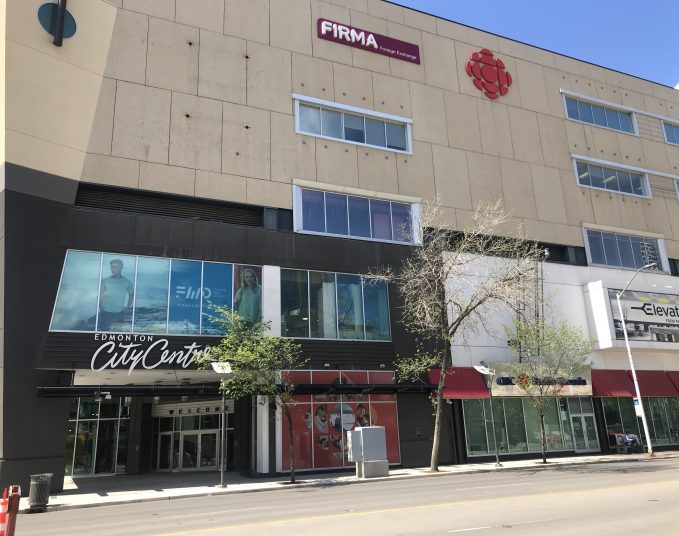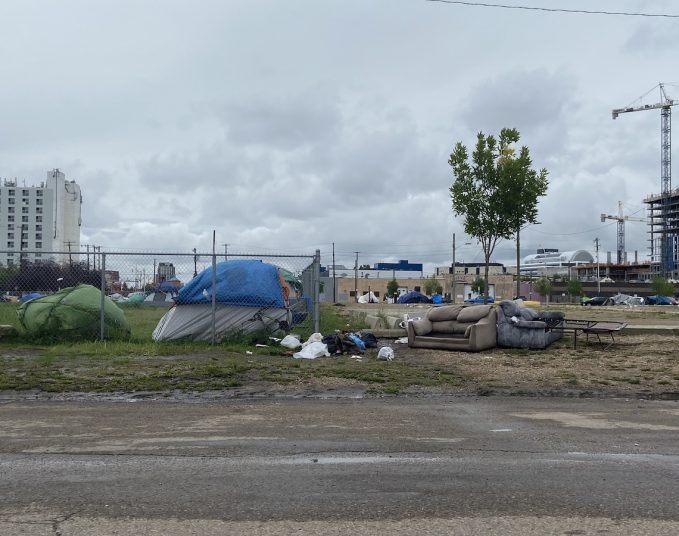A private security firm has been patrolling Edmonton’s streets at night, hired by the Downtown Business Association (DBA) after months of escalating complaints about trash, violence and vandalism.
The Downtown Night Patrol, which started quietly in January and launched publicly last week, runs from 12:30 to 8:30 a.m., seven days a week, to fill gaps in police patrols.
“There were concerns raised by businesses, by visitors to downtown, workers in the downtown core, where they just didn’t feel safe,” says the DBA’s operations manager Dinu Alex. “We thought, ‘OK, let’s put something in place that is not going to eliminate the problem, but at least it will give us a chance to be more proactive and deal with some of the issues.’”
Night Patrollers work in pairs consisting of a guard from Backwoods Security and a peer support worker from Hiregood, the social enterprise arm of Boyle Street Community Services, and they cruise the streets and alleys in a white and purple branded GMC Terrain SUV.
The lack of direct police involvement bears similarities to citizen patrol groups in rural Alberta that formed in recent years out of frustration with RCMP response times and a perception of rising property crimes. Alex, however, says the DBA is not clashing with the Edmonton Police Service, and has worked with them to figure out the best times and places to patrol.
“At the end of the day we’re not trying to step on anybody’s toes,” Alex says.
“We’re not actually intervening and trying to do anything like how cops would step in. Our role is to be in places where they are not.”
The year-long pilot program is funded by $400,000 from the City of Edmonton’s Downtown Vibrancy Fund.
The Night Patrol’s main goals are to prevent break-ins and vandalism, connect people on the street with community resources, non-violently de-escalate potentially dangerous situations, and track data and metrics on damage to businesses.
Patrollers carry a fire extinguisher to put out dumpster fires, and naloxone kits that Hiregood staff can administer in case of an overdose.
“If we see somebody trespassing into a building, the group will get out and talk to them. They’ve been trained with ways they can stand up to people. But if they’re brandishing a weapon or anything that’s it, we’re out – we’re just calling 911 straight off the bat and we’ll monitor from a distance,” Alex says.
He says the DBA specifically hired Backwoods because it is Indigenous-owned, by Alexis Nakota Sioux Nation, and says the unarmed patrol team is meant to be approachable and relatable.
“Our Hiregood team are people who have actually recovered from addictions, or have had the lived experience of being homeless and are able to relate to those people on the street. So de-escalation becomes a huge part of the conversation, and they’ve been very successful in doing it almost 99 per cent of the time.”
Alex says the safety concerns downtown flared up during the COVID-19 pandemic, when workers were staying home instead of coming downtown, and then were exacerbated by increases in homelessness and drug use.
“We’re definitely not making the assumption that people causing damage on the streets are the vulnerable population. It’s a mix,” he says.
Between Jan. 1 and July 31, the teams reported 82 cases of trespassing, 61 wellness and medical checks, 47 counts of graffiti or vandalism, 10 dumpster fires, five weapons-based assault incidents and two break-in attempts, according to Backwoods business development manager Jean-Marc Figeat.
“It’s a unique system,” Figeat says. “We think it’s one of the only ones in Canada, where an actual security team and a group like Hiregood has been put together.”
Figeat says the team does not use heavy-handed tactics and is not in the business of enforcing laws.
“We feel that talking to people is the best way of defusing a situation,” he says. “In many cases, the person just needs a hand – they need help, maybe they don’t have a place to stay for the night.”
While the team has seen successes, Alex hopes the pilot project will have an end date in the not-too-distant future.
“We are hoping that this is not a long-term program from our perspective, where we have to be on the streets all the time,” he says. “We’re hoping that this is just a bridging situation.”
Savvy AF. Blunt AF. Edmonton AF.




